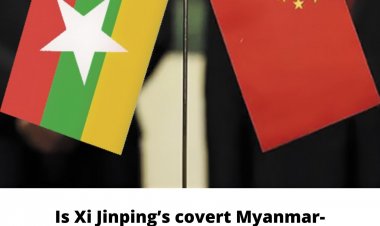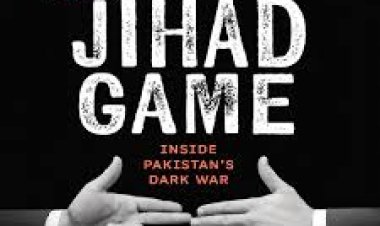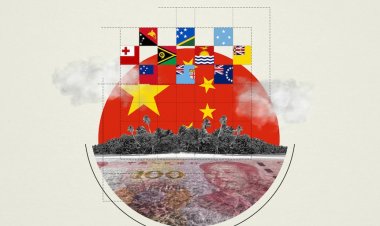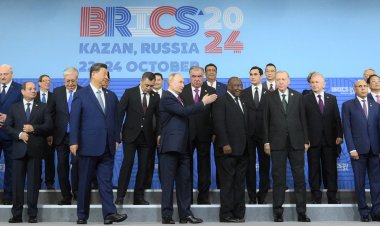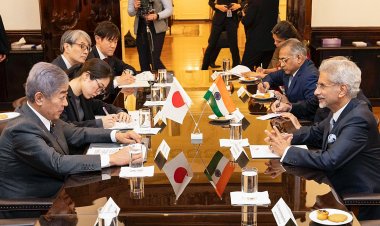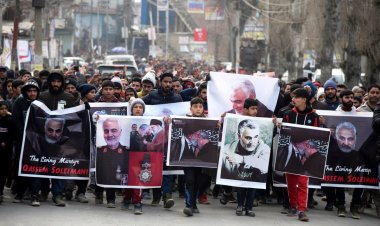How Islamist Networks and Pakistani Militants Fuel Atrocities Against Bangladesh’s Christians
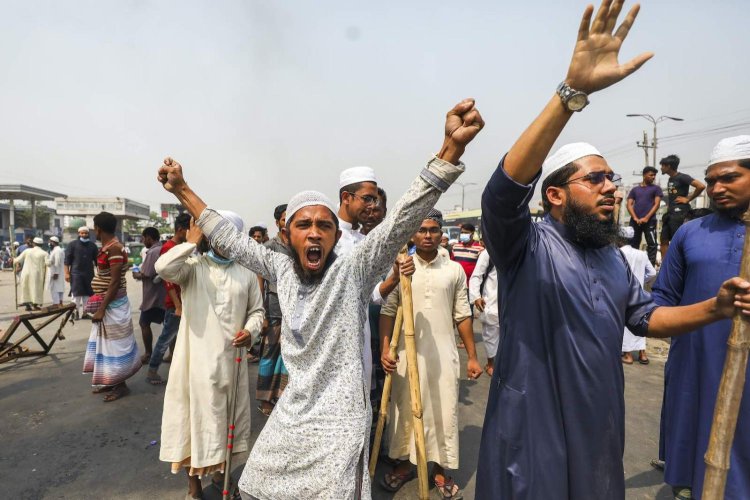
Analysis
By M A Hossain
Bangladesh, once admired as a bastion of religious tolerance in South Asia, now stands on a precipice. The renewed wave of violence against the Christian minority is not a random outbreak—it is the visible symptom of a deeper decay: the convergence of political opportunism and religious radicalism. Since the fall of Sheikh Hasina’s secular administration in August 2024, the fragile equilibrium between religious coexistence and political control has shattered. The interim government, led by Muhammad Yunus, seems either unwilling or strategically reluctant to stem the tide of Islamist resurgence. Instead, under Yunus’s watch, Bangladesh is witnessing an alarming normalization of extremism—culminating in targeted atrocities against its most defenseless citizens.
The latest violence exposes this reality with chilling clarity. On the night of November 7, Dhaka’s historic St. Mary’s Cathedral Church—one of the country’s oldest Christian landmarks—was attacked with crude bombs. One exploded outside the main gate; another, hurled inside, failed to detonate. The incident echoed a similar assault weeks earlier on the Holy Rosary Church in Tejgaon. For Bangladesh’s small but steadfast Christian community, the sense of dread has returned.
The Bangladesh Christian Association condemned the attacks as “a direct assault on the spirit of religious harmony.” Yet, the government’s response has been disturbingly muted. Police operations appear perfunctory, and no credible suspects have been detained. Security around churches has been superficially reinforced, but the perpetrators remain at large—mirroring a decades-long culture of impunity surrounding attacks on minorities.
The timing of these assaults is no coincidence. They come at a moment when the Yunus administration is increasingly accommodating Islamist factions once kept in check. The political convenience of appeasing religious hardliners, many with proven militant ties, is unmistakable.
Religious persecution in Bangladesh has always been cyclical, but never this politically charged. Christians, less than one percent of the population, have endured repeated waves of hostility. In 2001, a bomb blast at a Catholic church in Gopalganj killed ten people. In 2014, extremists attacked the home of Soren Kubi, a relative of the Bishop of Mymensingh. Neither case saw justice.
Since 2024, after Hasina’s ouster, the violence has surged. More than thirty attacks on Christian properties were recorded in less than a year. Over a hundred families have been forced to flee or abandon their faith under threat. Churches vandalized, priests threatened, Christian schools burned—these are no longer isolated incidents but a pattern of coordinated intimidation.
The perpetrators are not ghosts. Groups like Jamaat-e-Islami, Hizb ut-Tahrir, and Al-Qaeda-linked Ansar al-Islam have reactivated networks across the country. Their objective remains unchanged: to reshape Bangladesh into an Islamist republic intolerant of pluralism. Jamaat, whose leadership collaborated with Pakistan’s army during the 1971 genocide, has returned to political prominence under Yunus’s permissive regime. Its local cadres, emboldened by newfound protection, have reignited anti-minority violence—often with chilling efficiency.
Recent intelligence reports suggest something even more sinister: the reemergence of Pakistan’s espionage apparatus in Bangladesh’s domestic scene. The discovery by the Chittagong Port Authority of a massive consignment of poppy seeds( approximately 25 tonnes) used in narcotics production during a recent anti-drug operation raised alarm across security circles. Investigations revealed that the shipment had links to Pakistani militant networks and handlers within the Inter-Services Intelligence (ISI). This incident exposes a critical dimension—an evolving nexus between transnational Islamist financing, narcotics trade, and domestic radical outfits seeking to destabilize the interim government’s narrative of “neutral governance.” The same conduits of funding and logistics are believed to support extremist propaganda and attacks on minorities, including Christians, within Bangladesh’s borders.
These developments underscore how external influences, particularly from Pakistan’s militant-industrial complex, are fueling Bangladesh’s internal religious unrest. The Yunus government’s failure—or refusal—to act decisively against such threats deepens suspicions of complicity. Law enforcement agencies that once maintained strict vigilance against Islamist financing now appear paralyzed or politically restrained.
Reports by international watchdogs, including the OHCHR, document that Jamaat-linked mobs launched “revenge” attacks following the political upheaval of 2024. The victims were predictable—Christians, Hindus, Ahmadiyyas, and secular activists. Yet, the government’s silence has been deafening. The absence of prosecutions and the lack of official condemnation signal not mere incompetence but a deliberate political calculation.
To many, Muhammad Yunus still represents the soft-spoken reformer, the Nobel laureate promising peace and fairness. But his administration’s posture tells another story—a story of transactional politics with Islamist factions under the guise of “national reconciliation.” Since taking office, Yunus has allowed the political rehabilitation of banned groups and clerics once blacklisted for inciting sectarian hatred. His decision to delay elections has only strengthened the perception that he relies on Islamist networks for legitimacy.
This alignment comes at an enormous social cost. The space once occupied by secular discourse is now ceded to hardline voices. Sermons glorifying jihad, once rare, are now tolerated. In rural mosques and madrassas, anti-minority rhetoric circulates unchecked. Such normalization of intolerance doesn’t happen spontaneously—it requires permissive governance.
What we are witnessing is not passive neglect but an orchestrated abdication of responsibility. When police hesitate to arrest known radicals, when ministers dismiss bombings as “local disputes,” and when extremist clerics are seen advising government committees, the line between governance and complicity blurs.
The implications of this alliance between political expediency and fanaticism extend beyond Bangladesh’s borders. Intelligence assessments indicate renewed coordination between domestic militant factions and transnational jihadist networks, including Al-Qaeda in the Indian Subcontinent (AQIS) and ISIS-Khorasan. Encrypted communications between local cells and overseas handlers have surged, particularly targeting disaffected youth with promises of divine retribution and political empowerment.
The recent raw material for narcotics seizure at Chittagong Port further illustrates the financial backbone of this radical web. Narcotics trafficking, a time-tested funding channel for militant organizations, appears to be reemerging as a source of revenue for Islamist groups tied to Pakistani operatives. This convergence of criminal economics and ideological extremism transforms Bangladesh from a passive theater of violence into an active node of transnational militancy—one that could destabilize the entire Bay of Bengal region.
The Yunus administration’s inability to confront this threat invites comparisons to Pakistan’s own descent into militancy during the 1980s—when political leaders nurtured radicals for short-term gain, only to lose control later. Bangladesh, once a proud model of pluralism, risks replicating that tragic trajectory.
If these trends persist, the bomb at St. Mary’s Cathedral will be remembered not just as an attack on a church, but as a signal of a deeper national unraveling. The persecution of Christians is symptomatic of a broader dismantling of the secular state—a dismantling facilitated by those entrusted to preserve it. The Yunus-led interim government’s silence, selective law enforcement, and quiet engagement with Islamist power brokers together form an unmistakable pattern of orchestration through omission.
The stakes could not be higher. Bangladesh’s founding vision—rooted in faith, tolerance, and equality—is under siege. To restore it, the nation must confront uncomfortable truths: extremism cannot be contained through appeasement, and neutrality in the face of persecution is itself an act of betrayal. Unless the government decisively breaks its silent pact with the forces of fanaticism and foreign interference, the pluralistic soul of Bangladesh will continue to wither—one church, one minority, one principle at a time.
Disclaimer: This paper is the author's individual scholastic contribution and does not necessarily reflect the organization's viewpoint.
M A Hossain is a senior journalist and international affairs analyst. He is also a specialist on the counter terrorism and transnational crimes network.

